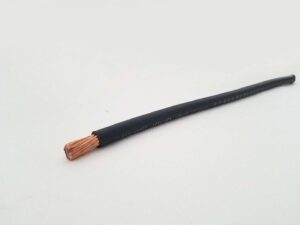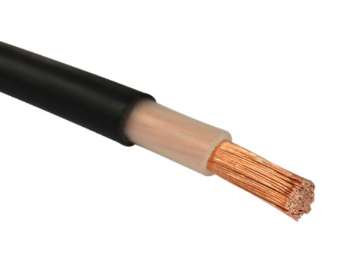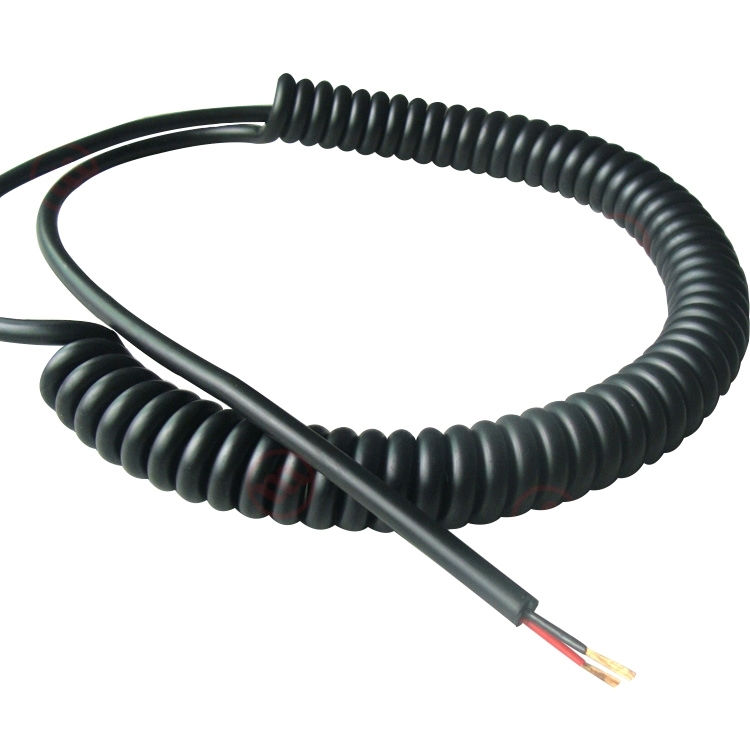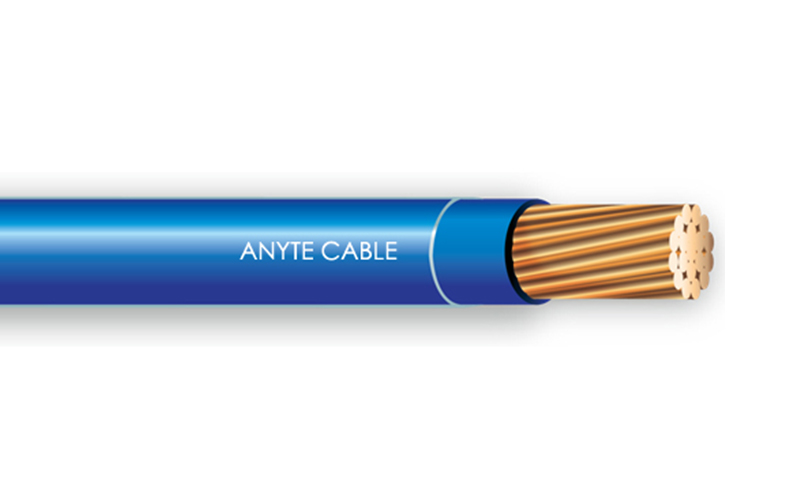In the world of electrical installations, the choice of cables is a critical decision that directly impacts the safety, efficiency, and functionality of various systems. Among the array of electrical cables available, RV-K cable stands as a versatile and dependable option that has gained recognition across different industries. In this comprehensive exploration, we will unravel the mysteries of RV-K cable, understanding its composition, features, and primary applications that have solidified its importance in the electrical world.

The Building Blocks of RV-K Cable
Before delving into its applications, let’s gain insight into what sets electrical cable apart. RV-K cable, a harmonized, flexible, and insulated cable, is predominantly known for its robust construction, which lends it a unique set of properties suitable for diverse applications.
- Copper Conductor:
Electrical cable features a copper conductor, which is highly conductive and resistant to corrosion. This material ensures efficient electrical flow, making it ideal for both low and medium-voltage applications.
- PVC Insulation:
The cable is insulated with PVC (Polyvinyl Chloride), providing excellent electrical insulation and protection against external factors such as moisture, chemicals, and abrasion. This insulation enhances the cable’s durability and longevity.
- Harmonized Compliance:
RV-K cable adheres to harmonized standards, which means it meets international regulations for safety and performance. This standardization ensures that electricalcable is reliable and consistent in quality.
- Flexibility:
One of the notable features of electrical cable is its flexibility. The cable’s design allows for easy handling, bending, and installation, even in confined spaces. This flexibility is a valuable trait in various applications.
Primary Applications of RV-K Cable
Now that we understand the core attributes of electrical cable, it’s time to explore the primary applications where it truly shines. The versatility of RV-K cable has made it a top choice in a wide range of industries:
- Building and Construction
electrical cable finds extensive use in the building and construction industry. Its flexibility, coupled with the durability of its PVC insulation, makes it perfect for wiring in residential and commercial buildings. It is commonly employed in electrical installations, connecting power outlets, lighting systems, and appliances.
- Manufacturing and Industrial Facilities
In manufacturing and industrial environments, where machinery and equipment run continuously, RV-K cable plays a crucial role. Its high conductivity ensures a stable power supply to various equipment, such as motors, control panels, and industrial machines. The cable’s insulation protects it from exposure to chemicals and oils commonly found in industrial settings.
- Outdoor and Underground Installations
RV-K cable is also suitable for outdoor and underground applications. Its robust insulation shields it from moisture, making it reliable for outdoor electrical installations, including lighting for landscapes and outdoor power outlets. Additionally, its flexible design simplifies underground installations, where it may need to navigate bends and corners.
- Marine and Nautical Use
Thanks to its resistance to corrosion, electrical cable is a preferred choice in the marine and nautical industry. It is often used in boats, yachts, and other watercraft for various electrical connections, from navigation systems to lighting and communication equipment.
- Renewable Energy Projects
As the world embraces renewable energy sources, RV-K cable has also found its place in this sector. Solar panels and wind turbines rely on the efficient transmission of power, and the cable’s copper conductor ensures minimal energy loss during transmission, making it an excellent choice for renewable energy projects.
- Data Centers and Telecommunications
The flexibility and electrical performance of electrical cable are advantageous in data centers and telecommunications installations. It is used for power distribution and connecting data center equipment, ensuring reliable and efficient data transmission.
- Agriculture and Farming
In agriculture, where heavy machinery and equipment are essential, electrical cable is utilized for power supply and control systems. It withstands the rigors of farming environments, providing durable electrical connections for machinery, pumps, and other agricultural equipment.
- Automotive and Vehicle Manufacturing
Electrical cable is also employed in automotive and vehicle manufacturing. Its flexibility and resistance to abrasion make it suitable for use in vehicle wiring harnesses, contributing to the reliability and safety of automobiles.

The Future of RV-K Cable
As technology advances and industries evolve, RV-K cable continues to adapt and meet the demands of modern applications. Its adherence to harmonized standards ensures that it remains a reliable choice for various sectors. With an ongoing focus on improving its properties, such as enhancing insulation materials and reducing environmental impact, electrical cable is poised to remain at the forefront of the electrical cable industry.
To address the diverse needs of different industries and applications, RV-K cables come in various specifications and types. These variations are designed to provide optimal performance and safety in specific scenarios. Some of the common types of electrical cables include:
- Single Core electrical Cable: This type of cable is ideal for applications where a single conductor is sufficient, such as residential wiring and general electrical connections. It is known for its flexibility and ease of installation.
- Multi-Core electrical Cable: In situations where multiple conductors are required, multi-core electrical cables are the preferred choice. These cables come with two or more insulated conductors within the same cable, making them suitable for more complex electrical systems and industrial applications.
- Low Smoke Zero Halogen (LSZH) electrical Cable: LSZH electrical cables are designed to minimize the emission of smoke and toxic fumes when exposed to high temperatures. These cables are commonly used in enclosed spaces, such as buildings, tunnels, and ships, where fire safety is a primary concern.
- Oil-Resistant electrical Cable: Oil-resistant RV-K cables are engineered to withstand exposure to oils and chemicals without compromising their electrical performance. They are widely used in industrial settings where contact with oils and lubricants is common.
- Solar electrical Cable: With the increasing use of solar energy, specialized electrical cables are designed for solar power applications. These cables are UV-resistant and can endure outdoor conditions, making them suitable for connecting solar panels in photovoltaic systems.
- Water-Resistant electrical Cable: In applications where moisture and water exposure are likely, such as outdoor lighting or submerged pumps, water-resistant electrical cables are the choice. They are designed to prevent water ingress and maintain electrical integrity.
- Heat-Resistant electrical Cable: For high-temperature environments, heat-resistant RV-K cables are employed. These cables can endure elevated temperatures without degrading their performance. They are commonly used in industrial ovens, furnaces, and similar applications.
- Fire-Resistant electrical Cable: Fire-resistant electrical cables are engineered to maintain their electrical functionality even in the presence of flames or extreme heat. These cables are critical in life-safety applications, such as fire alarm systems and emergency lighting.
- Aerospace electrical Cable: In the aerospace industry, electrical cables must meet strict safety and performance standards. These cables are used in aircraft wiring, avionics, and communication systems, ensuring reliable electrical connections in the demanding aerospace environment.
- Medical electrical Cable: Medical-grade electrical cables are crucial in the healthcare sector, where reliability and safety are paramount. They are used in various medical devices, diagnostic equipment, and patient monitoring systems.
As industries and technologies continue to advance, RV-K cables are likely to see further customization and specialization to meet the specific requirements of emerging applications. This adaptability is one of the reasons electrical cables remain at the forefront of electrical connectivity solutions across a multitude of industries.
In summary, RV-K cable is more than just a conduit for electricity; it is a symbol of progress and reliability in the electrical world. Its versatility, durability, and flexibility make it a top choice in diverse industries, ensuring that power flows seamlessly and safely in applications ranging from construction to renewable energy. As the world continues to innovate, electrical cable remains a steadfast companion, keeping the lights on and the machinery running across the globe.




